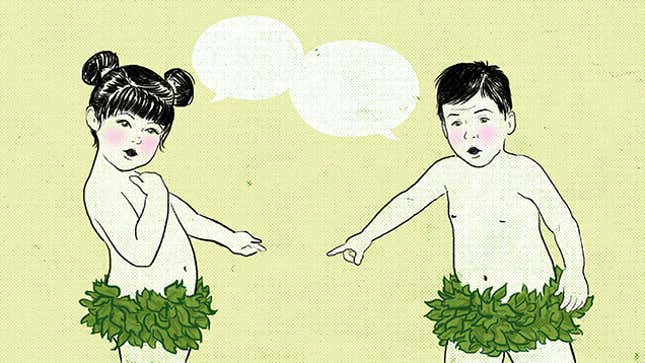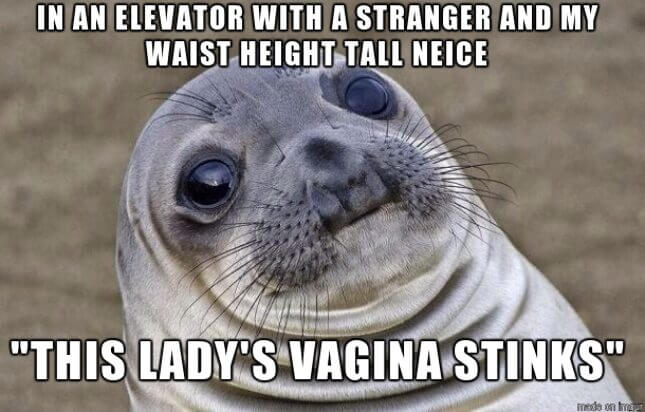OMFG Teach Your Kids Accurate Names for Body Parts Already
Latest

Generally speaking, girls have vaginas. Boys have penises. I did not think this was a groundbreaking thing to teach a 4-year-old (even at 2), but it is according to her teacher, who informed me my kid was telling other kids that babies come out of vaginas. First, I was so proud. Then I realized she was asking me to make her stop.
OK full disclosure: I’m a first-time parent, aka a rookie, an asshole, whatever you call it when someone does a thing everyone else has been doing for thousands of years and yet talks about it like the only person it ever happened to. If this is the worst ideological issue I’ve faced as a parent so far — and it probably is — then maybe I am lucky and you are free to mock me for my precious feelings directly in the comments (I know you were going to even if I didn’t ask — that’s our deal).
That said, HOLY SHIT WHY IS NOT OK TO SAY BABIES COME OUT OF VAGINAS? To be clear, I haven’t told her how the baby is made via a penis and vagina, or artificial insemination, or by reading The Secret. And to be extra clear, I could’ve also told her that babies also come out of stomachs sometimes, too, and via adoption, but we just haven’t gotten that complex about it. Apparently she simply said at school that babies come out of vaginas, and was told to only speak of this with mommy or daddy. And she got upset, because she now believed she was in trouble.
But to oblivious me, the question where do babies come from, which my daughter has been curious about for a while, seemed easy enough to answer, and important enough to answer accurately at this age: Babies are typically born from vaginas.
I try to discuss this like it is no big deal and how things work, because:
A.) It is no big deal and
B.) That is how things work
C.) She is a girl, subject to a ludicrous degree of shame about her specific parts. I want her to be comfortable with her body as often as she is curious, and as appropriate as is warranted based on her development. It should not ever be regarded as shocking or bad.
D.) This is not a new idea, or even a “me” idea, it’s a researched and thoroughly supported idea by experts.
-

-

-

-

-

-

-

-

-

-

-

-

-

-

-

-

-

-

-

-

-

-

-

-

-

-

-

-

-

-

-

-

-

-

-

-

-

-

-

-









































